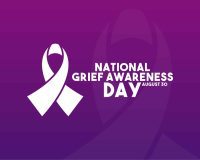It’s hard enough to deal with a terminal illness and the care involved – so to help take some of the mystery out of what exactly “hospice” means, here are a list of the most frequently asked questions according to the National Hospice and Palliative Care Organization (NHPCO) and CaringInfo, a national consumer education and engagement program that is a part of NHPCO.

Will I have my own hospice team and how often will they visit?
Every person receiving hospice has access to a registered nurse, social worker, hospice aide, chaplain, and volunteers. This team will work with you and your family to create a plan for hospice care. All visits are based on you and your family’s needs in your individual care plan and your medical condition during the course of the patient’s illness. The frequency of volunteers and spiritual care often depends on the request and the availability of these services.
Is hospice available 24 hours a day, 7 days a week?
Yes. Hospice care is available “on call’” after the administrative office has closed, seven days a week, 24 hours a day. Hospices are required to have nurses available to respond to a call for help within minutes, if necessary. Some hospice programs have chaplains and social workers on call as well.
What do hospice volunteers do?
Hospice volunteers are generally available to provide different types of support to individuals and their loved ones including running errands, preparing light meals, staying with a person to give loved ones a break, and lending emotional support and companionship to individuals and loved ones. Each hospice program generally has some type of application and interview process to assure the person is right for this type of volunteer work. Once approved, there is a training program for their volunteers covering areas such as understanding hospice, confidentiality, working with families, listening skills, signs and symptoms of approaching death, loss and grief and bereavement support.
What happens if I can’t be cared for at home?
A growing number of hospice programs have their own hospice facility or have arrangements with nursing homes, hospitals or inpatient residential centers that care for people who cannot be cared for at home. However, the cost to live in these settings may not be fully covered by your insurance so it’s important to find out if insurance covers this type of care before you call hospice.
Can I be cared for by hospice if I reside in a nursing facility or other type of long-term care facility?
Hospice services can be provided to a person who has a life-limiting illness wherever that person lives. This means a person living in a nursing facility or long-term care facility can receive specialized visits from hospice nurses, home health aides, chaplains, social workers, and volunteers, in addition to other care and services provided by the nursing facility. The hospice and the nursing home will have a written agreement in place in order for the hospice to serve residents of the facility. The Medicare Hospice Benefit will cover the care related to your terminal illness, but it does not cover daily room and board charges of the facility. If you are eligible for Medicaid, that will cover room and board charges.
Do state and federal reviewers inspect and evaluate hospices?
Yes. There are state licensure requirements that must be met by hospice programs in order for them to deliver care. In addition, hospices must comply with federal regulations in order to be approved for reimbursement under Medicare. Hospices must periodically undergo inspection to be sure they are meeting regulatory standards in order to maintain their license to operate as well as maintain the certification that permits Medicare reimbursement.
How can I find out if a hospice provides excellent care?
Many hospices use tools to let them see how well they are doing in relation to quality hospice standards. Most hospice programs use family satisfaction surveys to obtain feedback about their services so they can make improvements. Ask the hospice to share a summary of their family satisfaction scores for the last several months with you. You can also ask to see their latest state or Medicare inspection report to see if there are care provision problems and you could ask to see the hospice providers list of complaints from the past 12 months. Lastly, you can also ask them if they participate in the national Family Evaluation of Hospice Care. If they do, they should be able to provide you with a summary that compares their scores with the national average scores.
Click here to learn more about who is responsible for care with hospice.
Additional Links:




